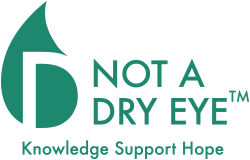Should patients be given a voice or should patients just accept what they are told by their health care providers, pharmaceutical companies, medical device manufacturers, insurers, and others?

Not that long ago, patients were expected to listen to their doctors and accept what they were being told at face value. It was believed that if patients knew too much about their own bodies, and the health care they received, they might become anxious or agitated in ways that wouldn’t be beneficial to them.
These days, patients act more like customers who know what they want. With out-of-pocket health care costs rising into the tens of thousands of dollars for some every year, it’s no wonder.
So why wouldn’t every health care provider, every pharmaceutical company, every medical device manufacturer, and every insurer, choose to listen to their patients, a.k.a. customers?
What Matters to People Seeking Health Care
This year the National Academy of Medicine gave its Gustav O. Lienhard Award to David Cella, PhD, of Northwestern University Feinberg School of Medicine “for his pioneering work to measure and apply patient-reported outcomes in health care.”
This is why NAM presented the award to Dr. Cella.
“Dr. Cella’s trailblazing work in investigating what matters to people seeking health care has paved the way for a better, more patient-centered approach,” said NAM President Victor J. Dzau.
During his career, Dr. Cella has made transformational contributions toward understanding what aspects of life matter most to people struggling with health conditions and measuring those aspects so that the information can be used to guide care. In 1985, he conducted in-depth interviews with cancer patients in order to develop questionnaires that could shed light on how cancer therapeutics were affecting patients’ lives, at a time when it was uncommon in oncology to ask patients how they were feeling. His efforts helped usher in an era in which it is common practice to include patient stakeholders both in the development of quality-of-life questionnaires and in the more general conduct of research and clinical care.
Whether or not the “common practice to include patient stakeholders” has been adopted by all health care providers, including those who treat Dry Eye patients, remains to be seen.
In the Spirit of Patient Participation
In the spirit of patient participation, we contacted the Tear Film and Ocular Surface Society (TFOS) earlier this year when we learned that TFOS, the organization behind the Dry Eye Workshop (DEWS) and The International Workshop on Meibomian Gland Dysfunction, would be convening DEWS II to:
update the definition, classification and diagnosis of dry eye disease, critically assess the etiology, mechanism, distribution and global impact of this disorder, and address its management and therapy.
Given that nearly a decade had passed since the first DEWS papers — which we regard highly and often cite on this website — were published, we supported the effort wholeheartedly.
After contacting TFOS via e-mail, and offering to participate to ensure that the “patient perspective” would be included in committee meetings and publications, thereby giving patients a voice, our offer was declined. We were told that committee members had already been selected and that there were already many patients among them.
We admit that we had missed the deadline to submit candidates for participation. That’s absolutely true.
But when we reviewed the list of committee members, we found only two patients per se. The “many” others? Well, we can assume, based on estimates of the incidents of Dry Eye, that some of the committee members have some form of the disease, though we just couldn’t figure out which ones they are.
Giving Patients a Voice
So we decided to write a letter offering the Dry Eye patient perspective to all of the DEWS II committee members. The letter was e-mailed in July to over 100 committee members and copied to dozens of other stakeholders and the media.
Download Giving Patients a Voice: The Not A Dry Eye Foundation Letter to TFOS DEWS II Committees.
So share our letter. Download and forward it as many times as you like. Circulate it and discuss it. Post it on Facebook and talk about it on Twitter. Tell your doctors about it and even your government representatives. Send it to your local newspapers and favorite magazines. Share it with you family and friends.
Give yourselves a voice!
Send your questions and comments to blogger@notadryeye.org.
Subscribe to our blog to keep up with Not A Dry Eye.
Support Not A Dry Eye Foundation by shopping on Amazon. When you shop at smile.amazon.com, Amazon donates 0.5% of your purchase.

